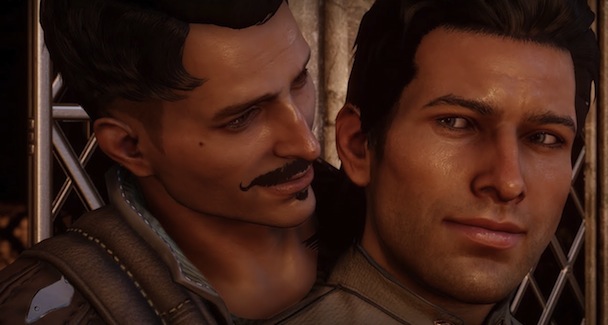Overtime at Frostbite Cinematics
These past couple days most of the video games development community was set on fire by some pretty bad article written by some pretty famous guy on some pretty high traffic website. I’m not going to comment on it – other people like Rami Ismail did that very well already. Interestingly enough, it revived the old debate about “passion” and “crunch”, and we’ve seen a fair number of interesting articles about it as a result. This is not one of those articles either.

What this is is just a simple look at what’s going in my team, Frostbite Cinematics, which I think is interesting because Frostbite is in a fairly unique position in the industry, and that translates to a fairly different approach to overtime.
Spoiler alert: there’s pretty much none.
Pretty things
For those who need a refresher, Frostbite is EA’s proprietary game engine. Originally Battlefield’s engine, it now powers a growing number of EA games, including the Bioware franchises, Need for Speed, Mirror’s Edge, or PvZ: Garden Warfare. Where Unity or Unreal have thousands of customers that are external to them, we only have a dozen, but with which we have very close partnerships.
On the cinematics team (around 6 people), we build the tools that let people make, well, cinematics. If you know Unreal, a very simplistic but easy way to look at it is that we’re responsible for something that looks like1 the Matinee editor.

(we also get to work on gay sex scenes)
Going undercover
One thing that sets us apart (but that other groups inside Frostbite are increasingly adopting) is that we like to be embedded with our customers. We spend months at a time (co-)developing new features, or polishing existing ones, directly in a team’s codebase.
During that time we’re often treated as temporary members of the team: we attend team meetings and stand-ups via Skype, we’re active on their JIRA boards, we break their build, and we get some cool swag2.

The one thing we can’t afford however is to do overtime: if we started doing overtime for one team, we’d have to do overtime for all teams. So we just make it clear, and we try to manage our task load accordingly and realistically. While helping ship Dragon Age: Inquisition, I think we must have stayed late only a handful of times.
Of course, that’s quite unique to us. Other groups in Frostbite, especially in Stockholm, had a vastly different (and grueling) experience while shipping Battlefield 4, for instance.
The drive
Most people on the overall “Frostbite Animation & Cinematics” team (around 20 people) are what you’d call “passionate” to some degree. And this quest to hire other “passionate people” is all fine and dandy – of course we want to hire people who will care about what they do here. But the biggest fallacy about it is thinking that the entirety of this passion has to be spent sitting on that one office chair, on that one project.
Furthermore, this “passion” takes a different form when you start looking at core tech teams. Generally, people who care about games want to work on games, period. People who work on core tech care about something slightly different.
They may care about games, but dislike the often “throw-away” nature of AAA game dev, seeking a position where the code you write is longer lived and multi-purpose. They may care about, say, “animation in games” (in our case), and want to make a difference at a deeper level. Or they may not care about games at all, and instead just love a good technical challenge with an end product that’s fun to press F5 for. This means that the end result of a “crunch”, which may be at least appealing to a game team member (because that’s the game they want to make) may not be so appealing to a core tech dev (because it’s often hacky code or crappy UX that will have to be fixed).
Just say no to drugs
So when faced with the possibility of having to do overtime, it’s easier as a Frostbite Cinematics dev to just say no if it feels unnecessary. Sometimes it can still require some guts, like when you have a multi-Oscar winning CTO from Lucasfilm who calls you at 3pm on a Friday to suggest that you stay over the week-end to fix a problem… but it’s possible.
It doesn’t even have to be about “staying late” overtime. For instance, I personally consider eating at one’s desk to be a capital offense. Maybe it’s my French upbringing, coming from a country where 1-hour lunch breaks are the norm. It’s also just incredibly sad. But so many people do it – and probably only a small fraction of them have a good reason to do so (like a lengthy commute to their kid’s school).

I once bumped into one of our junior devs who was heading for his desk with a plate from the cafeteria. He gave me a lame excuse about having bugs to fix or something, when I knew there was absolutely no time-sensitive factor. I gave him a very tongue in cheek speech about perpetuating a culture of overtime and constant pressure because of impostor syndrome-induced fantasies of how an ideal game dev performs. He sighed, smiled, and joined us for lunch.
Once you foster a culture where things can generally wait 30 minutes so you can get a healthy lunch, it gets easier to foster a culture where things can generally wait until tomorrow so you can get a healthy evening.
One more thing
We’re hiring! Hit me via email or twitter if you’re interested.